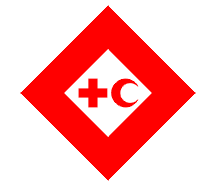AS at other Conferences individual National Societies reported on their organization and activities. One of these was, in 1938, the Indian Red Cross:
“The Indian Red Cross collaborates with the other health and philanthropic organizations of India. Thanks to this co-operation, relief work at the time of the Quetta earthquake was carried out with a maximum of efficiency.
The Society has perfected its organization for relief in time of war or national disaster by the formation of reserves of voluntary aids, establishing a list of certificated nurses and women doctors, and working out a mobilization plan.[i]”
Somewhat later the Conference discussed the tenth Hague Convention, and the following is included only for the language utilized, and which would not be employed in 2019 – perhaps the present time is less poetic:
“II. THE REVISION OF THE TENTH HAGUE CONVENTION FOR THE ADAPTATION TO WARFARE AT SEA OF THE PRINCIPLES OF THE GENEVA CONVENTION.
The Tenth Hague Convention is a venerable lady who has not changed the fashion of her dress for more than thirty years. Her attire is consequently somewhat faded and out of date. It is now time—and here, again, the feeling is unanimous—for her to go to the dressmaker[ii]”.
Given that the Conference took place in London a particular proposal was practicable, and put forward by Mrs. Amanda Brieba de Lorca of Chile:
“On behalf of the women of Chile, and as delegate of the Chilean Red Cross, I wish to propose to the other women delegates at this Conference that we should go together to the monument of Florence Nightingale and lay at the feet of her statue, as a mark of our fervent admiration, a tribute of eternal gratitude. (Applause). [iii]”
While it does not throw much light on the role of women within the Movement, a topic before the Conference did directly affect those of that gender:
“VII. PROTECTION OF WOMEN AND CHILDREN AGAINST SUFFERING RESULTING FROM ARMED CONFLICTS.
The consideration of this question was asked for by the French Red Cross, which, in a document pre sented to us by Count Clauzel, explained that it was not asking the Conference (if only because its initiative had been taken so late) to come to definite conclusions. The French Red Cross simply asked that the attention of governments should be drawn to this serious problem.
During the discussion, the representatives of the Save The Children International Union, Mrs. Morier and Airs. Small, emphasised the great importance of this problem for the organisation they represented, and kindly offered their fullest co-operation to the International Committee for the study of this question. The offer was gratefully accepted, and the Commission acted upon the French proposal by approving a draft Resolution, formulated as follows : —
“The XVIth International Red Cross Conference,
Affirming the importance of the problem of protecting women and children against the sufferings resulting from armed conflicts,
Requests the International Red Cross Committee to study this problem in co-operation with the Save the Children International Union,
And recommends that the national Red Cross Societies bring this question before their Governments, after consultation with the national bodies specially concerned with the protection of women and children. [iv]””
That resolution was adopted.
Miss Boardman of the USA addressed the Conference to deliver the report of the 4th Commission, which included:
“In the misfortune of war, the whole population
desires to give patriotic service to its country. It is important to consider
how best to capitalize and utilize to the best advantage that desire to be of
service. This is another reason for preparing those desiring to help to be able
to render assistance of a practical nature. And finally, we consider that, in
the great misfortune of war, there are sufferings that are not alone physical,
and that the anguish of the women at home, the men of whose families are
fighting at the front, causes as great suffering as that caused by the weapons
of war. By giving these women an opportunity, if
indirectly, to serve those whom they love and for whose safety they fear, the
Red Cross is rendering its duty to those sufferers at home. [v]”
[i] [XVI] Sixteenth international Red Cross Conference, London, June 1938 : report; [Geneva : ICRC : League], 1938; P 57; P 70/154 in the electronic version at https://library.icrc.org/library/docs/CDDH/CI_1938/CI_1938_RAPPORT_ENG.pdf
[ii] [XVI] Sixteenth international Red Cross Conference, London, June 1938 : report; [Geneva : ICRC : League], 1938; P 79; P 92/154 in the electronic version at https://library.icrc.org/library/docs/CDDH/CI_1938/CI_1938_RAPPORT_ENG.pdf
[iii] [XVI] Sixteenth international Red Cross Conference, London, June 1938 : report; [Geneva : ICRC : League], 1938; P 72; P 85/154 in the electronic version at https://library.icrc.org/library/docs/CDDH/CI_1938/CI_1938_RAPPORT_ENG.pdf
[iv] [XVI] Sixteenth international Red Cross Conference, London, June 1938 : report; [Geneva : ICRC : League], 1938; P 82; P 95/154 in the electronic version at https://library.icrc.org/library/docs/CDDH/CI_1938/CI_1938_RAPPORT_ENG.pdf
[v] [XVI] Sixteenth international Red Cross Conference, London, June 1938 : report; [Geneva : ICRC : League], 1938; P 91; P 104/154 in the electronic version at https://library.icrc.org/library/docs/CDDH/CI_1938/CI_1938_RAPPORT_ENG.pdf
